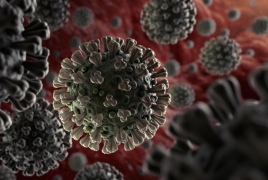
Arum Han, professor in the Department of Electrical and Computer Engineering at Texas A&M University, and his collaborators have designed an experimental system that shows exposure of SARS-CoV-2 to a very high temperature, even if applied for less than a second, can be sufficient to neutralize the virus so that it can no longer infect another human host, according to information published by Phys.org.
Applying heat to neutralize Covid-19 has been demonstrated before, but in previous studies temperatures were applied from anywhere from one to 20 minutes. This length of time is not a practical solution, as applying heat for a long period of time is both difficult and costly. Han and his team have now demonstrated that heat treatment for less than a second completely inactivates the coronavirus—providing a possible solution to mitigating the ongoing spread of Covid-19, particularly through long-range airborne transmission.
The Medistar Corporation approached leadership and researchers from the College of Engineering in the spring of 2020 to collaborate and explore the possibility of applying heat for a short amount of time to kill Covid-19. Soon after, Han and his team got to work, and built a system to investigate the feasibility of such a procedure.
Their process works by heating one section of a stainless-steel tube, through which the coronavirus-containing solution is run, to a high temperature and then cooling the section immediately afterward. This experimental setup allows the coronavirus running through the tube to be heated only for a very short period of time. Through this rapid thermal process, the team found the virus to be completely neutralized in a significantly shorter time than previously thought possible. Their initial results were released within two months of proof-of-concept experiments.
Han said if the solution is heated to nearly 72 degrees Celsius for about half a second, it can reduce the virus titer, or quantity of the virus in the solution, by 100,000 times which is sufficient to neutralize the virus and prevent transmission.

